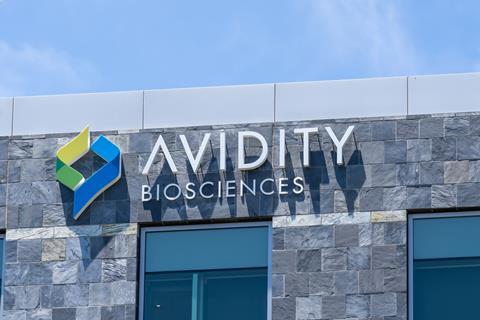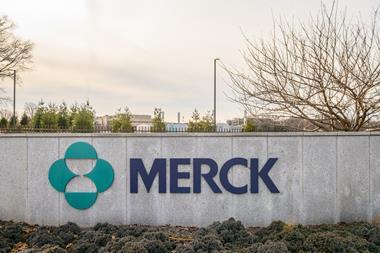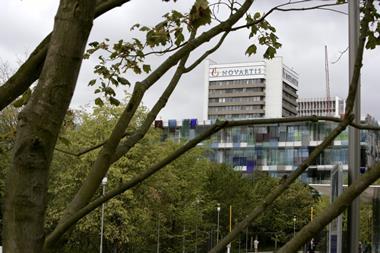Swiss pharma giant Novartis has been on a deal spree ahead of several major patent expiries. In late October it agreed a $12 billion (£9 billion) cash deal for Avidity Biosciences, a biopharma with a new class of therapeutics that allows antibody-targeted delivery of RNA.

The deal expands Novartis’s neuroscience portfolio, adding to drugs like its Gilenya (fingolimod) for multiple sclerosis, and should complement its existing expertise in genetic neuromuscular diseases. The acquisition should also ‘cement its position in the rare diseases space,’ says Shivani Singh, healthcare analyst at the Economist Intelligence Unit.
California-based Avidity uses antibodies to guide RNA to particular tissues or cells and targets three muscular diseases. Positive trial results for Duchenne muscular dystrophy patients were reported last year, and an approval decision from the US Food and Drug Administration is expected in late 2025.
Meanwhile, Novartis has lost exclusivity on its blockbuster combination heart drug Entresto (sacubitril and valsartan) in July this year in the US. The drug had 2024 sales of over $4 billion in the US and almost $8 billion globally, so the company is looking for deals to replace anticipated sales reductions as generic competitors enter the market. ‘Novartis has been aggressively pursuing deals and acquisitions which can strengthen and diversify its drug pipeline and also help offset revenue loss,’ explains Singh.
A lot of big biological drugs are losing [patent] exclusivity over the next five years
In October, Novartis acquired Tourmaline Bio for its monoclonal antibody, pacibekitug, which is ready to enter phase 3 trials. The antibody was developed to dampen inflammation for cardiovascular disease and chronic kidney disease, but is potentially relevant to a variety of conditions.
The firm also recently came to a licensing and collaboration arrangement with Arrowhead Pharmaceuticals in California for a preclinical small interfering RNA (siRNA) therapy intended to treat neurodegenerative diseases such as Parkinson’s. It paid $200 million up front, with potential milestone payments of up to $2 billion. It also signed a licensing deal with Chinese biotech Argo Biopharma for its experimental treatments for heart disease and lipid disorders using siRNA.
The Swiss giant focuses on cardiovascular, renal and metabolic disorders, neuroscience, oncology and immunology. It is especially advanced in the areas of cell and gene therapy; RNA-based treatments and radioligand therapies. As well as using acquisitions to restock its pipeline, the firm has restructured and cut thousands of jobs to reduce costs in recent years.
Patent expiries are a perennial challenge for pharma companies, but a patent cliff is on the horizon. ‘We’re coming to the end of a biological super cycle, where a lot of big biological drugs are losing exclusivity over the next five years,’ says Luca Borelli, head of health industries deals at PwC, Switzerland.
‘Between now and the beginning of 2031, there’s about $200bn worth of revenue that is going to be impacted by either a generic or a biosimilar,’ says Jared Holz, healthcare equity strategist at Japanese financial group Mizuho. ‘There are roughly 20 publicly traded biotech companies with revenues expected to be above $2 billion by 2030. That gives you an idea of just how many companies would need to be acquired to make up for all the lost sales.’
Pharma companies have started waiting [longer for deals], despite the assets then being more expensive
Novartis is not the only company facing this challenge. ‘[Eli] Lilly, AstraZeneca and AbbVie are better positioned on the patent side,’ says Holz. ‘And then you’ve got Merck & Co, Bristol Myers Squibb, Pfizer, Amgen and Novartis that all have looming patent expiries, but Novartis doesn’t stand out.’
The strategy of buying clinical stage biotechs to develop drugs internally has fallen somewhat out of favour with big pharma firms in recent years, partly as the valuation of even clinical stage firms rose precipitously over the course of the Covid-19 pandemic, when significant money flowed into the market. ‘Pharma companies have started waiting until it is more proven, despite the assets then being more expensive’ says Borrelli. For Avidity, ‘Novartis paid around four times 2030 revenue estimates, which is about average,’ says Holz. ‘In dollar terms, it is one of the largest [pharma] transactions of the year.’
The Avidity deal is seen as a good fit. ‘The cost of this acquisition as well as the number of competitive bids could have gone up, if the company waited for positive clinical trial data,’ notes Singh. ‘By getting in relatively early, Novartis does pre-empt the expected overall rise in prices that we expect to see for such targets as mergers and acquisitions accelerate as a result of the new patent cliff.’

















No comments yet